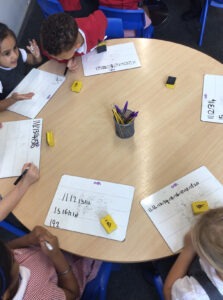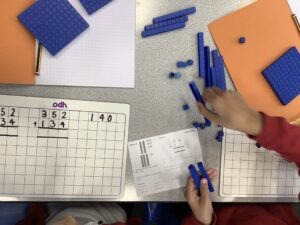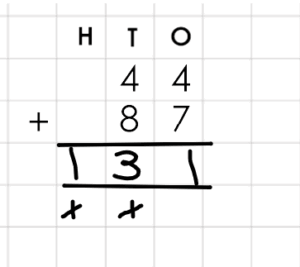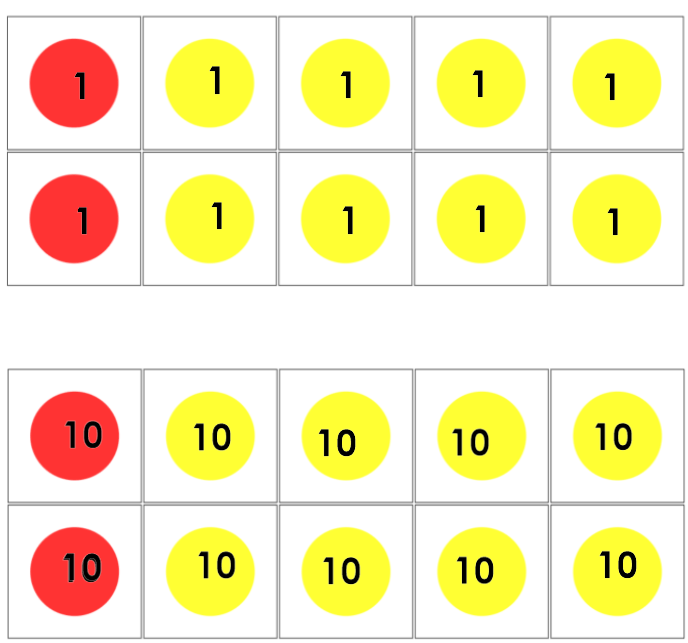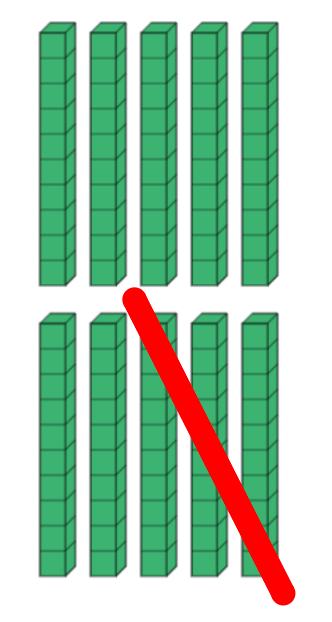English text
The children are enjoying our current class novel, Yours sincerely Giraffe by Megumi Iwasa.
Ask your child what is happening so far in this fiction text.
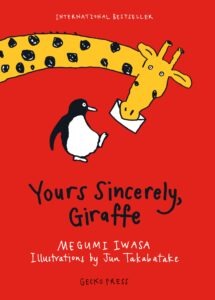
PE – Castles and Cannon Balls
In PE, we worked together as a team to build castles using different pieces of equipment. This challenged us to use our resilience and communication skills. Once our castles were built, we had great fun using balls, quoits and beanbags to try and knock them down!
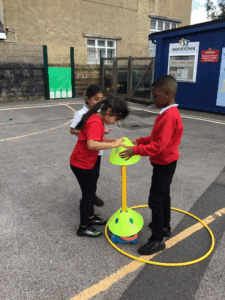
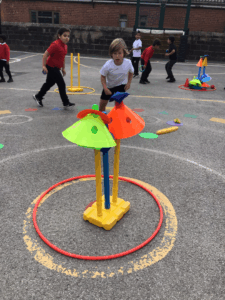
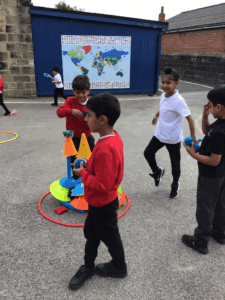
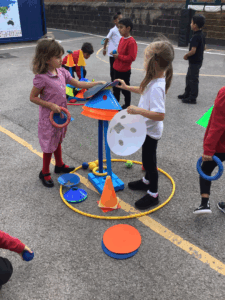
Maths
This week in Maths, we’ve been practising counting in tens from 0 to 100.
For example:
0, 10, 20, 30, 40, 50…
0 tens, 1 ten, 2 tens, 3 tens, 4 tens, 5 tens…
We’ve also been learning how to represent multiples of ten using both words and numerals. One important discovery is that every multiple of ten always ends with a zero.
To help us, we’ve been using the stem sentence:
“___ is made of ___ tens. ___ is a multiple of ten.”
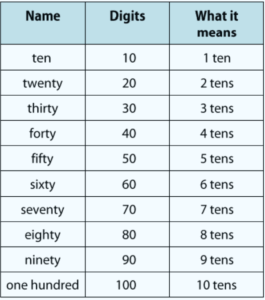
We’ve been practising showing numbers in lots of different ways on our whiteboards too.
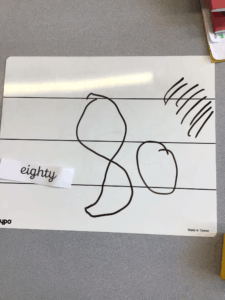
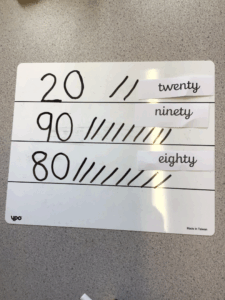
Well done Year 2!
Help at home:
- Practise counting in tens together. Start from 0 and go up to 100 (0, 10, 20, 30…). Then try counting backwards from 100 to 0.
-
Ask your child to represent multiples of ten in different ways (e.g. using coins or drawing groups of ten).
-
Say a number (like 40) and ask your child to complete the stem sentence:
“40 is made of 4 tens. 40 is a multiple of ten.”
Maths: column addition
We’ve started maths in Year 4 by reviewing the column addition they learnt in Year 3. I’ve been really impressed with how quickly your children have picked this back up.
We initially used Base 10 to help us represent the addition and when we were confident we moved onto just using the column method.
We revisited exchanging and discussed how we know when to regroup in column addition.
If the column sum is equal to 10 or more, we must regroup.
Help at home: ask your children to identify which of the following calculations will need regrouping? How do they know?
329 + 132
322 + 125
573 + 143
242 + 635
Maths: number bonds to 100!
We’re at the beginning of our maths journey in Year 3 and we’re applying our knowledge of numbers bonds to 10 to support us with our number bonds to 100.
If I know that: 3 + 7 = 10
Then I also know that: 3 tens + 7 tens = 10 tens
and I can work out that: 30 + 70 = 100
Similarly for subtraction:
If I know that: 10 – 3 = 7
Then I also know that: 10 tens – 3 tens = 7 tens
and I can work out that: 100 – 30 = 70
Repeat the phrase: There are 10 tens in one hundred.
Help at home by practising this strategy with your child. Can they use their number bonds to ten to support their number bonds to 100?
Welcome to Reception
A reminder that our ‘Welcome to Reception’ meeting is on Monday 15 September, 2025 at 6pm. This is held at school.
Following our first welcome session, this is an opportunity to find out some basic ‘need to knows’ about life in Reception.
We look forward to seeing you there.
PE: OAA
This half term’s PE units are OAA (outdoor adventurous activities) and Football. This week, in OAA, the children have used their amazing teamwork skills to communicate with peers.
For part of this lesson, each group needed to create their own game using only hoops. They used well-known games as the basis of their own, for example, Hot Potato, What’s the time Mr wolf? and Hoopla.
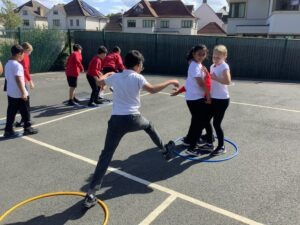
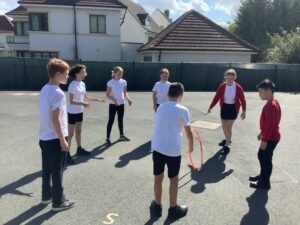
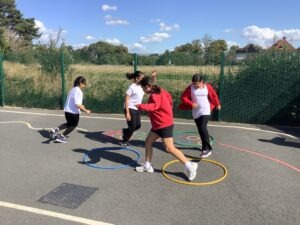
Help at home: When else can we use our teamwork skills?
Living and Learning: Eight Rs for Learning
This week our L&L statement was ‘I use the eight Rs to help me learn.’ We started off by recapping the 8Rs and then looked at each one in detail and discussed different statements that match the 8Rs.
- reflecting – I look for feedback from my teachers and peers and think about how I can use this to improve.
- remembering – I find links between what I am learning and what I already know.
- resilient – I stick at things even when they are difficult and do not give up; I stay positive.
- resourceful – I know where to find information and use it in my work (word walls, support sheet etc.).
- responsible – I am respectful with everything (presentation, resources etc.).
- risk-taking – I can ask questions and give my opinion in a group/class situation.
- responsive – I can respond appropriately to peers and adults.
- ready – I always want to learn new things.
“I think I am good at being resourceful as I can look around at the classroom displays to help me with my work.”
“I need to improve on (safe) risk-taking as I only put my hand up for an answer I am 100% sure on.”
“I need to work on remembering as I forget a lot of things – I could do this by saying it in my head multiple times.”
“I think I’m good at being responsible as I play with younger children in the playground at break and lunch times.”
“I think I’m good at reflecting because when I’m done with my work I look back at the tasks to see what I’ve completed and how I felt when doing them.”
“I think I’m responsible because I listen to instructions.”
Help at Home: Discuss with your child which 8R for learning they feel confident in and which they feel like they need to improve.
Living and Learning: Rules
This week, in Living and Learning, we’ve been focussing on rules. As we’re settling back into school, it’s important we remind ourselves of our three school rules so we’ve looked closely at them and discussed why they’re important. We also discussed how we can demonstrate them around school.
We should have silent voices, empty hands and eyes on the speaker to show we’re ready and respectful.
We should always use our manners and say please and thank you to everyone.
We need to walk slowly and sensibly around the school so we don’t hurt ourselves or other people.
We’ve had some really interesting discussions this week about why we have rules and what would happen if there were no rules. It was great to hear your children’s ideas during our circle time session based around rules.
Following our school rules will make our school a happy, healthy and safe place to learn.

Help at home – think about our three school rules and talk with your child about what they might look like or sound like. Compare them with your rules at home. Are they similar? Are they different?
Maths: number formation
Today in our maths lesson, we’ve been practising identifying, counting and writing numbers up to 20 in order. The children worked really hard and I was very impressed by their super maths skills!
